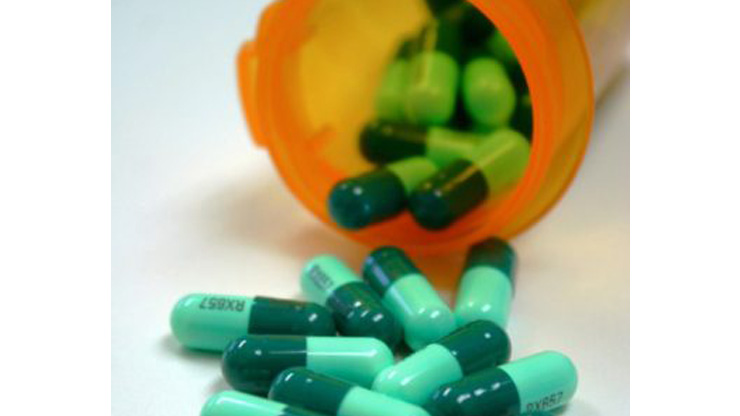
DUI Laws in Illinois apply to people who are under the influence of alcohol as well as persons who may be under the influence of drugs. If a Police officer suspects that you are under the influence of any type of drug, even prescription drugs, you may be arrested for DUI. While the elements of a DUI-Drug case are similar to that of a DUI-Alcohol case, in that the prosecution has to prove a person was impaired while in actual physical control of a vehicle, proving impairment by drugs often requires expert testimony. Because most police officers are not qualified as experts, the court will not allow them to opine as to whether a person is impaired by a particular drug. This can make it difficult for the prosecution to be able to lay the proper foundation to admit all the evidence they need to secure a conviction for DUI drug. An experienced defense attorney will be able to take advantage of these evidentiary requirements in order to get the best disposition possible.
OVER THE COUNTER MEDICATIONS AND PRESCRIPTION DRUGS
Even if you are taking over the counter medications, or medications for which you have a prescription, you may still be arrested for DUI Drug. Just because you are legally consuming medication does not mean the State won’t bring charges against you. In a DUI-Alcohol case, the State may prove impairment based on a breath test or standardized field sobriety testing. In a DUI drug case the state must prove BOTH that you were taking a substance that has an impairing effect AND that you were actually impaired from the consumption of that substance. Evidence of this type is only admissible through expert testimony. It is often the case that the police officer making the arrest does not have the proper training or qualifications to determine if a person is legally under the influence of drugs. An experienced attorney will take advantage of this and move to suppress any evidence obtained by an unqualified or untrained police officer.
CONTROLLED SUBSTANCES – STRICT LIABILITY
Driving while under the influence of any controlled substance for which you do not have a prescription is considered a strict liability crime. This applies to prescription medications that have an impairing effect and to illegal drugs such as cocaine or heroin. Being a strict liability offense means the State does not have to prove that you were actually impaired by the substance at the time of driving. The only thing the State must show to secure a conviction is that you had trace amounts of a controlled substance in your system while operating a vehicle. Depending on the substance consumed, there can be trace amounts in a person’s system for several days, long after the effects of the drug have worn off. This means a person who has consumed controlled substances several days ago and is driving a car is potentially guilty of DUI.
SHOULD I SUBMIT TO CHEMICAL TESTING?
Unfortunately, it is the reality of our system we live in that the people who cooperate with law enforcement usually suffer the worst consequences. If a person has consumed a controlled substance a week ago and shows no signs of impairment, the only way the State could be convicted of DUI-Drug is if the driver were to voluntarily give a urine sample to the police. If a person shows no signs of impairment and does not submit to chemical testing, it will be nearly impossible for the State to prove their case. If you refuse testing or you submit to a test that shows trace amounts of a controlled substance in your system, then your license will become suspended.
DUI COMBINATION DRUGS AND ALCOHOL
Additionally, if the police believe that a driver is under the combined influence of alcohol and drugs, then they may charge that person with a DUI based on the combined influence. This charge is usually present when a person has a BAC less than .08 or the person admits to the police officer that they were consuming some sort of prescription medication that has an impairing effect. The statute provides that a person is guilty of DUI if they are “under the combined influence of alcohol, other drug or drugs, or intoxicating compound or compounds to a degree that renders the person incapable of safely driving.” This can sometimes be a difficult charge for the prosecutor to prove up. To secure a conviction the prosecution will have to prove all of the following beyond a reasonable doubt:
It is often very difficult for the prosecution to get a conviction on this type of charge because they will need expert testimony to prove that a particular type of drug has an impairing effect AND that the driver was under the influence of that particular drug at the time of driving. It is not enough for an unqualified police officer to testify that a person merely looked like he was on drugs, or that he was acting crazy so he had to be taking something.
WHAT THE STATE HAS TO PROVE
While the elements of a DUI Drug and Alcohol may be similar, the State will have a couple of extra hurdles to jump before securing a conviction. With most DUI-Drug cases, the arresting officer will not be qualified to opine to the court that a person was under the influence of drugs. Most police officers are not trained as drug recognition experts (DRE) and will be barred in court from testifying about a person’s impairment to drugs. Even if a police officer is qualified as a DRE, this usually will only include illegal drugs such as cannabis, heroin, cocaine, etc.
When the state tries to prosecute based on impairment from prescription drugs, they will need more than the testimony of a DRE qualified police officer. There are several types of prescription medications out there and each of them have differing effects. When prosecuting a DUI-Drug case based on prescription medication, the state will have to prove the following
When you get into the arena of prescription drugs, even the police officers that are qualified as drug recognition experts may not have the ability to detect the effects of the different prescription medications that are out there. Additionally, when proving that a particular medication has an impairing effect, a police officer’s testimony will not be sufficient. The prosecution will be required to present expert testimony from a doctor or a pharmacist.

Written By: Attorney Jonathan James
Rockford DUI Drug Lawyer